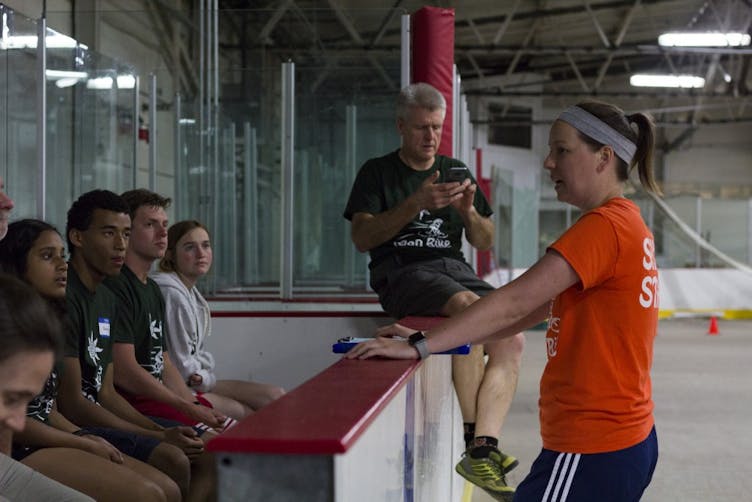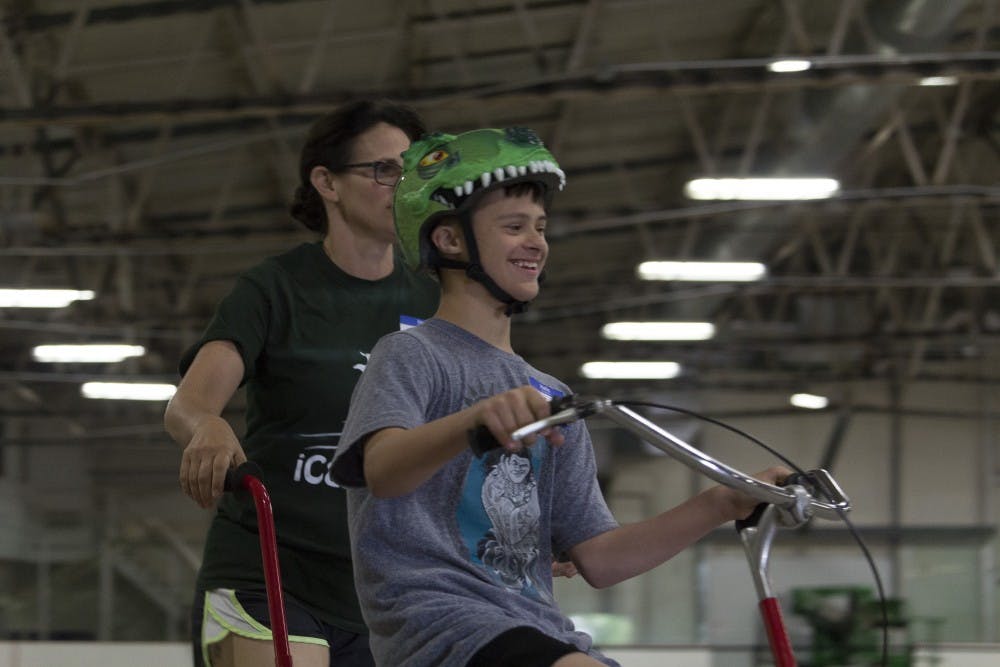Frank Southern Ice Arena looked more like Bill Armstrong Stadium last week as campers of all abilities raced around in circles and learned how to ride bikes.
The riders spun in bright colors and were chased by jogging volunteers, who directed them away from the walls. Crashes and falls were rare, but when they occurred, the arena would burst into applause.
“It’s nice they have a place where they’re safe to fail without feeling bad,” Dawn Burks said.
Burks had come to watch her 10-year-old daughter, Quinna, who has a cognitive disorder and autism. Quinna was riding a real bike by the fourth day of camp.
iCan Bike is a nationwide nonprofit organization teaching kids and adults with disabilities how to ride a bike. It was hosted by the Down Syndrome Family Connection, a local non-profit group that spreads knowledge about Down syndrome to the public. The camp sessions took place for 75 minutes each weekday and were attended by 12 participants ages 8-20.
Quinna and other students began the learning process by using a “roller bike,” which has a regular wheel in front and a “roller” in the back. The roller is thinner and rounder than a normal bike wheel, and it has weights.

The volunteers removed the weights gradually during the participants’ water breaks until they could handle a real bike. The next bike is a “normal” one, aside from a handlebar on top for volunteers to direct participants away from walls.
“You just don’t fall as much with this as with mom and dad in the driveway,” Burks said.
High school senior Kevin Murphy said he and other volunteers got to know their campers well over the course of the week Some of the volunteers were parents, and two of them were iCan Bike workers touring the country.
iCan Bike belongs to a larger nonprofit organization called iCan Shine. iCan Bike representative Clayton Whalen said the program currently has an 80-percent success rate. Whalen said most of the participants at the Bloomington camp were riding a bike effectively by the end of the week.
John Bunde, the camp’s co-director and a Down Syndrome Family Connection board member, led the effort to bring in iCan Shine.
His 6-year-old daughter, Molly, has Down syndrome, and he said he wanted to give back to families in the same position. He said the stress of planning the event faded once he saw the joy in the eyes of campers and parents.
Two mothers at the camp, Burks and Kate Stein, were no exceptions. They smiled just as much as their kids, stopping their conversations to cheer while standing against the glass around the rink for a better angle.

“For me, everything just came easy as a kid, but not for him,” Stein said. “But he works so hard. It’s just great to see him get it.”




